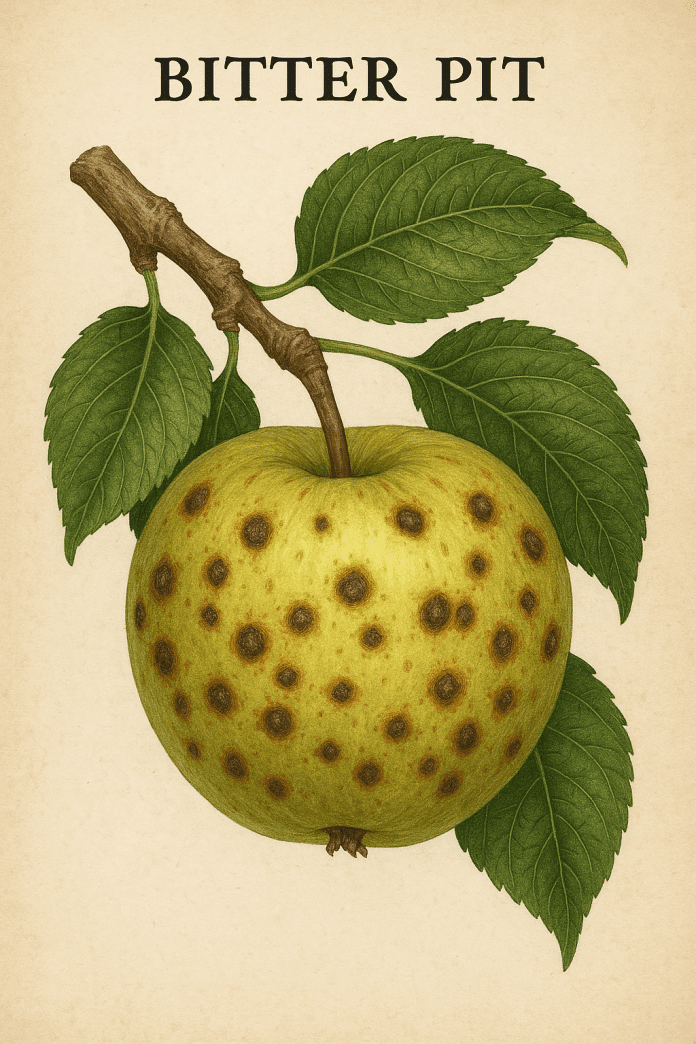Bitter Pit
Overview:
Bitter pit is a physiological disorder affecting apples (Malus domestica), primarily caused by calcium deficiency in the fruit. It manifests as small, dark, sunken spots on the skin and browning of the flesh beneath. The disorder reduces fruit quality and market value, making it a significant concern for commercial growers and home orchardists alike.
Symptoms:
- Small, dark brown or black sunken lesions on the fruit skin, typically appearing after harvest.
- Discoloration and corky, dry tissue beneath the affected skin.
- Often starts at the blossom end of the fruit and spreads.
- Does not produce foul odors or soft rotting, distinguishing it from fungal or bacterial infections.
Causes and Contributing Factors:
- Calcium Deficiency: Inadequate calcium uptake in developing fruits leads to cell wall breakdown.
- Environmental Factors: High temperatures, drought, and irregular watering can exacerbate the condition.
- Excessive Nitrogen or Potassium: These nutrients can interfere with calcium absorption.
- Vigorous Growth: Excessive vegetative growth competes with fruits for calcium.
- Rootstock and Variety Susceptibility: Some apple cultivars, such as ‘Honeycrisp’ and ‘Granny Smith,’ are more prone to bitter pit.
Prevention and Management:
- Calcium Sprays: Regular foliar applications of calcium chloride or calcium nitrate can improve calcium levels in fruit.
- Balanced Fertilization: Avoid excessive nitrogen and potassium while ensuring adequate calcium supply.
- Consistent Irrigation: Prevent drought stress and water fluctuations to support calcium uptake.
- Thinning Fruit: Reducing crop load allows for better nutrient distribution.
- Proper Storage: Some bitter pit symptoms develop post-harvest; storing apples at optimal temperatures can minimize progression.
Conclusion:
Bitter pit is a common yet preventable disorder in apples. By managing calcium levels, controlling vegetative growth, and optimizing orchard conditions, growers can significantly reduce its occurrence. Proper identification and proactive treatment ensure higher fruit quality and improved yields.




